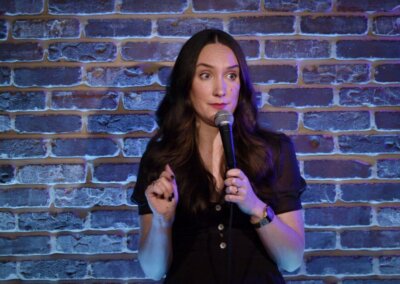As MSPs prepare to vote on the assisted suicide Bill in Scotland tomorrow, 61% of Scots are concerned that victims of domestic abuse “would feel pressured into ending their lives if assisted suicide were to be legalised” in Scotland, according to a recent poll.
The poll of 1,088 adults conducted by Whitestone Insight earlier this month found that concern was greatest among pensioners with 83% of those over 75 saying that they were worried about domestic abuse victims being pressured into ending their own lives if assisted suicide is made legal.
According to The Other Half, the think tank that commissioned the survey, the Scottish Government should expect at least 100 domestic abuse victims a year to seek an assisted suicide if Liam McArthur’s assisted suicide Bill becomes law.
The Other Half, which develops policy in women’s interests, said that the poll confirmed “Scottish people are worried about the vulnerable being coerced into state death”.
The Other Half’s chief executive, Fiona Mackenzie, said “That worry is heightened for older people and disabled people, who report the greatest concern of all the public. They may see the vulnerability and dependence of older age and disability. We should listen to them”.
“We know that older adults, especially older women, are vulnerable to escalating abuse in older age, with one in six over-60s estimated to have experienced elder abuse in the last 12 months”.
Scottish Tory MSP Stephen Kerr said “Liam McArthur’s assisted dying Bill is a direct threat to vulnerable people. Most Scots now fear that victims of domestic abuse could be pressured into ending their lives – and they’re right to”.
“The Bill says nothing about domestic abuse. Its definition of ‘terminal illness’ is dangerously vague and could be widened through the courts, just as experts have warned”.
Isabelle Kerr, who recently retired as the head of a women’s refuge founded by JK Rowling, said the Bill “may place domestic abuse survivors in even more danger from perpetrators”.
“Domestic abuse survivors who have lived with coercive and controlling behaviour from a partner will believe that she is the one making the decision to end her life, that it is best for everyone, and that her life is worthless as this is part of that pattern of behaviour common to many controlling and abusive men”.
Growing opposition to assisted suicide Bill in Scotland
The polling comes just days after the Scottish First Minister, John Swinney, announced he would be opposing the assisted suicide Bill. The First Minister has since been joined by Deputy First Minister Kate Forbes and leader of Scottish Labour, Anas Sarwar. Former First Ministers Nicola Sturgeon and Humza Yousaf have also recently come out against the Bill.
The public opposition from these high-profile Scottish MSPs comes just days after McArthur’s decision to raise the minimum age to access assisted suicide in the proposed Scottish legislation from 16 to 18.
According to The Sunday Times, McArthur was told by several MSPs that they would only give the Assisted Dying for Terminally Ill Adults (Scotland) Bill their support if he raised the minimum age from 16 to 18. One of the Bill’s supporters described the raising of the minimum age as a “tactical retreat”, used by McArthur to ensure his Bill passed, and he would be prepared to make “other changes if required to get it through”. The unnamed parliamentarian said “The age thing was always there to be traded, a tactical retreat. Most of the detail is resolvable, and there will be other changes if required to get it through”.
Former Associate Professor of Bioethics at St Mary’s University, London, Dr Trevor Stammers, condemned this move, writing “Trading with the lives of teenagers does not commend the Bill”. Stammers also described this change to the Bill as “a last ditch effort to save the Bill” and said the offer of assisted suicide was “a chilling prospect at either age [16 or 18]”.
Critics said the move suggested a feeling of panic amongst McArthur and his team. Scottish Conservative Councillor James Bundy said “Supporters of the assisted dying Bill are panicking – raising the age from 16 to 18 won’t fix the risks, it just proves them. This Bill is flawed, unsafe, and open to legal challenge. MSPs must vote it down at Stage 1”.
Last year, Swinney himself said he had “significant concerns” about teenagers as young as 16 and 17 being able to end their lives under the Bill. Despite McArthur raising the age, Swinney will still not vote in favour of the Bill.
The First Minister’s statements also follow a report by Scotland’s Health, Social Care and Sport Committee, which directly identified significant flaws with the Bill.
One area of contention is the definition of terminal illness, which the Bill itself defines loosely, saying that it applies in cases in which someone has an “advanced and progressive disease, illness or condition from which they are unable to recover and that can reasonably be expected to cause their premature death”.
Under the Bill, anyone with a terminal condition that could foreseeably end their lives, even many decades in the future, would qualify for an assisted death, including those with conditions such as anorexia, Down’s syndrome, and people with disabilities.
Pam Duncan-Glancy, MSP for Glasgow, the first permanent wheelchair user in the Scottish Parliament, said “This report confirms what disabled people like me have warned all along: that once a line is crossed, it is incredibly difficult to stop that line moving. Make no mistake, this bill as drafted is very broadly drawn, it does not set a timescale on the definition of terminally ill, merely that someone must have a condition which could end in their premature death”.
Spokesperson for Right To Life UK, Catherine Robinson, said “Scots are right to be concerned about the possibility that victims of domestic abuse could be pressured into ending their lives if assisted suicide is made legal. The impact this legislation will have on victims of domestic abuse is yet another reason MSPs have for rejecting this dangerous Bill”.












